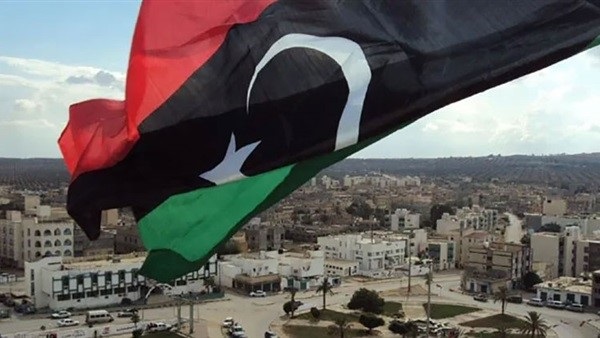Dimensions of suspicious alliance to subject Libya to Western hegemony

Since 2011, Libya has been exposed to a conspiracy aimed at
bringing it to its knees and making it subject to Western hegemony, with the
aim of controlling its wealth. The West considers Libya its gas station and is
conspiring with the international envoy to legalize that situation.
The greatest evidence of this is the UN Security Council’s
rapid approval of the initiative of the UN Envoy to Libya Abdoulaye Bathily in
mid-March 2023, as he gave a deadline to Libya’s House of Representatives and the
High Council of State to agree on a roadmap leading to elections no later than
mid-June, threatening to take the initiative after that and form a high-level
Libyan team to prepare and organize the electoral process, with the support of
the United States, Britain, France, Germany, and Italy, but Egypt and Russia
rejected this initiative because it undermines the role of legitimate Libyan
institutions.
Suspicious initiative
In this context, Egyptian strategic expert Major General
Gamal Taha confirmed that fear of the results of the suspicious initiative
hastened the move of the Libyan House of Representatives and the High Council
of State, so they completed the formation of the 6+6 committee to draw up
electoral laws by the end of March. On July 11, the committee agreed on a
roadmap, which provides for the formation of a mini government tasked with
supervising the organization of elections 240 days
after the adoption of electoral laws.
Taha added in statements to the Reference that the
implementation of the roadmap and the start of the countdown until the election
date was subject to the Speaker of the House of Representatives signing its
laws and publishing them in the Official Gazette, a process that faltered as a result of the 6+6 committee’s refusal to make any
amendments to it. This allowed the UN envoy to explain that the objection of
Abdul Hamid Dabaiba, the head of the outgoing Government of National Unity
(GNU), and Field Marshal Khalifa Haftar, the commander of the Libyan National
Army (LNA), to the roadmap and the election laws meant the impossibility of
holding them, and perhaps the return of conflict, which forces them to be
amended. Bathily suggested forming a supreme committee to manage the elections
to circumvent the formation of a new government that would oust Dabaiba, but
this was met with strong opposition from both the House of Representatives and
the High Council of State.
Misleading public opinion
Taha pointed out that after the House of Representatives
approved the roadmap, the United Nations mission in Libya warned against
unilateral measures that undermine the opportunity to hold elections, to which
60 representatives in the House of Representatives responded by denouncing the
UN mission’s statement, asserting that it misleads public opinion and seeks to void
consensus between the House of Representatives and the High Council of State
from its content, as well as limiting its importance by describing it as a
“unilateral measure,” even though it represents the basis for a broad consensus
among Libyans to reach presidential and parliamentary elections, a goal that
was a basic demand of all the international envoys who preceded Bathily. The
Foreign Affairs Committee of the Libyan House of Representatives also condemned
the statement of the UN mission, considering it a violation of the powers of
the UN envoy, and stressed that the mandate of the mission is limited to
providing advice if requested, facilitating meetings of the Libyan parties, and
providing the required logistical support This position was supported by the Egyptian
Foreign Ministry.
He pointed out that what is suspicious is that, in the face
of the attack on the international mission, the embassies of the United States,
Britain, France, Germany and Italy in Libya issued a joint statement on July 27,
in which they affirmed their support for Bathily’s position and his efforts to
push new Libyan parties to address the disputed points in the electoral laws
issued by the 6+6 committee.
Western support for Bathily
Taha confirmed that Western capitals’ support for the UN
envoy against the approach of the House of Representatives and the High Council
of State does not only mean ending the previous agreements that took place
between House Speaker Aguila Saleh and High Council of State Chairman Khaled al-Mishri,
but rather it reflects their desire to get rid of the two chambers, push a new
group of leaders committed to an agenda for settlement, and promote the
consensus of interests between Western powers and the Libyan West through a new
political forum formed from political, societal, and military spectrums to
produce an agreement that forces the two chambers and the two governments to
leave the scene and produce a new political scene, even if during periods of
political transition.
“Perhaps Bathily’s support for the 5+5 Joint Military Commission
and the expansion of its work by including a number of military and security
leaders in it is an attempt to find a new center of power that balances the
main forces on the scene and paves the way for the crystallization of the new
political entity,” he continued.
Taha confirmed at the end of his statement to the Reference
that some Libyan leaders realized the dangers of the new Western conspiracy on
the future of Libya, which explains the meeting between Presidental Council
head Mohamed al-Menfi, House Speaker Aguila Saleh, and LNA commander Khalifa
Haftar on August 19 in Benghazi, in which they agreed for the House of
Representatives to take over all procedures referred to it by the 6+6 committee
and for its leadership to coordinate with the leadership of the High Council of
State to complete the political track and achieve consensus to complete the electoral
laws, as well as to call on the UN envoy not to take any unilateral steps on
the political track.





